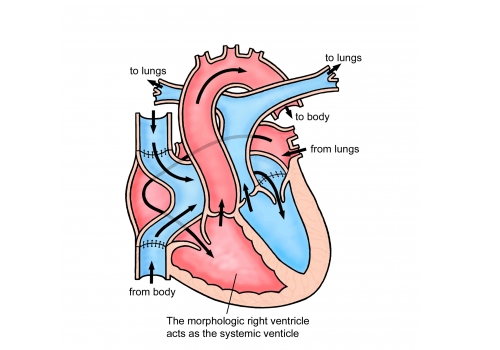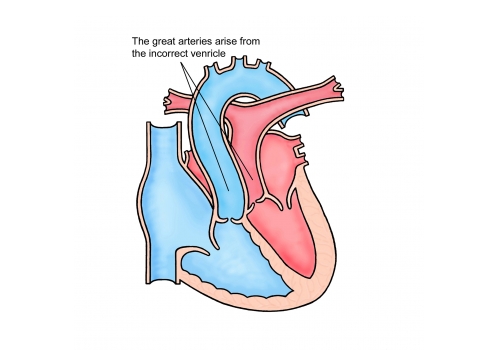Adult
- About
- Meet The Team
- Conditions
- Anticoagulation in Pregnancy
- Aortic Dilatation and Pregnancy
- Aortic Valve Disease
- Aortic Valve Replacement
- Atrial Septal Defect
- Coarctation - Transcatheter stent (keyhole) treatment
- Coarctation of the Aorta
- Congenitally Corrected Transposition of the Great Arteries
- Ebsteins Anomaly
- Eisenmenger’s Syndrome
- Fontan Circulation
- Mitral Valve Repair/Replacement
- Normal Heart
- Patent Foramen Ovale
- Pregnancy information for women with metal heart valves
- Pulmonary Incompetence
- Pulmonary Stenosis
- Pulmonary Valve Replacement - Surgery
- Pulmonary valve replacement - Transcatheter (keyhole) treatment
- Repaired Atrioventricular Septal Defects
- Sub-aortic Stenosis
- Surgical treatment of Atrial Septal Defect
- Tetralogy of Fallot
- Transposition of the Great Arteries - The Atrial Switch (Mustard or Senning) procedure
- Transposition of the Great Arteries – Arterial Switch
- Ventricular Septal Defect
- Ventricular Septal Defect - Transcatheter (keyhole) treatment
- Patient Feedback
- Making the most of your clinic appointment
- Your Appointment in Outpatients
- Easy Read Guide for Out Patients
- Cardiac Catheter
- Transoesophageal Echocardiogram
- MRI
- Surgery & "Top Tips" for coming into hospital
- Lifestyle Advice
- Exercise
- Heart Failure
- End of Life and Palliative Care
- Looking after your oral health
- Dentists Information Section: Dental care in adults at risk of Infective Endocarditis
- Yorkshire Regional Genetic Service
- Support
- Video Diaries
- Second Opinion
- Monitoring Results at Leeds Infirmary
- Professionals
Transposition of the Great Arteries - The Atrial Switch (Mustard or Senning) procedure
You were born with ‘Transposition of the Great Arteries’ (TGA). The main artery leading from your heart to your lungs and the main artery leading from your heart to your body are swapped over.


When you were born, blue blood returning to the heart from the body went directly back around the body instead of being pumped around the lungs to become red (pick up oxygen). Red blood returning to the heart from the lungs returns straight back to the lungs instead of being pumped around the body. This deprives the body of the oxygen it requires. This condition is fatal if not treated as a baby.
Between around 1960 and 1980 the best treatment for this condition was an operation called the atrial switch – or Mustard or Senning procedure. This involves redirecting the blue blood returning to the heart from the body out to the lungs, and redirecting the red blood returning to the heart from the lungs out to the body via a series of channels sewn into the back of the heart. This works very well, but there are some potential problems which can occur in adult life which you should know about.
Pumping problems
The right sided pumping chamber (right ventricle) was designed to pump blood to the lungs, which only requires low pressures. After the atrial switch operation, the right ventricle is pumping blood to the whole body, so has to work much harder than it was originally designed to. Over many years this extra work can damage the pumping chamber leading to it becoming weak. This can lead to shortness of breath or reduction in the amount of exercise you can manage. It is confirmed by taking pictures of the pumps of the heart with echocardiography. The symptoms can be treated to a certain extent with drugs.
Heart rhythm problems
It is quite common for people who have had an atrial switch operation to run into problems with the electrics of the heart in adult life. This causes the heart beats to be either too fast or too slow.
If the heart beat is too slow, this can result in dizziness or even collapses. Some people require a heart pacemaker to control this problem. Sometimes the heart can beat too fast. Most people will notice this as palpitations will develop. Some people feel quite poorly with their palpitations, they can go dizzy or collapse. We can sometimes treat fast heart beats using medications. Sometimes we need to use more complicated treatments.
Problems with the channels
The channels that have been sewn into the back of the heart to divert the blood flows can occasionally become narrowed or can leak. (Remember, they were sewn in when you were tiny, and you have grown quite a lot since then!) Sometimes these leaks or narrowings can cause symptoms such as breathlessness on exercise, and in some people – gout. Sometimes these leaks or narrowings require treatment to fix them. Often this is done via a ‘keyhole’ technique, but very occasionally requires further surgery.
Endocarditis
You no longer need antibiotics if you are having any work done on your teeth. However it is important to take good care of your teeth and have regular dental check ups every 6-12 months. Everyone’s mouth carries bacteria (bugs) and these can settle on the abnormal heart. This called endocarditis. This is uncommon but if it does happen then a long period in hospital can be required, and endocarditis can be fatal. We would also advise against tattoos and piercings due to the potential increased risk of infection in the heart.
Insurance
It can be difficult for people who have had the atrial switch procedure to get insurance. This can cause problems with travel insurance and also when trying to buy a house or get life insurance. There are some more sympathetic insurers who can be identified and contacted through the GUCH patients association (www.guch.org.uk)
Pregnancy, contraception and risk to your children
There are many women who have had successful pregnancies following the atrial switch procedure but the risk to the baby and the mother can be higher. If you are thinking about having a baby you should see your cardiologist before becoming pregnant to discuss this. Your cardiologist or specialist nurse will be able to give you advice regarding the best form of contraception to use to avoid getting pregnant. The chance of having a child born with a heart problem is slightly higher than normal because you have a heart problem yourself. Your cardiologist will be happy to discuss this with you.
Adult Congenital Heart Team
